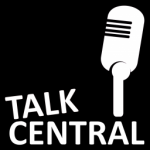
In the third of a series of promoted podcasts with Seacom, TechCentral’s Duncan McLeod talks to Seacom Business South Africa GM Grant Parker about the “smoke and mirrors” of the country’s Internet market.
Parker kicks off the discussion with a look back at the development of the Internet industry in South Africa over the past 10 years, and the impact that Seacom has had in bringing meaningful competition to the sector.
It’s clear that the South African Internet market has come of age, and consumers — especially business customers — are benefiting from plummeting prices, increased speeds and a vast array of package choices.
But, as Parker explains in the podcast, not all offerings are created equal, and businesses need to do their research to ensure they’re getting what they pay for.
“This golden age of the Internet access has a dark underbelly, with many too-good-to-be-true promises proving to be just that,” Parker wrote in a recent column. “There is a lot of smoke and mirrors in the sector, with providers easily winning customers via impressive offers, and then disappointing when the actual experience falls short.”
He explained that in a cluttered and competitive sector, deciding on a broadband contract and Internet service provider can be “incredibly confusing”.
‘Promise the earth’
“When rival products look the same, it’s not uncommon for providers to promise the earth in terms of ‘speeds and feeds’ to win a sale — only to hide behind the service-level description when the customer is dissatisfied. Service-level agreements, which may include penalties for early agreement terminations, also help more nefarious providers get away with providing an inferior service.”
Broken promises typically hinge on “breakage” models widely used in the market, Parker said, where ISPs rely on variable usage patterns from customers to offset the fact that they have “less” bandwidth than they sell.
“The Internet connectivity sector has seen mammoth shifts in the past decade as it opened up post the state-owned-telecoms monopoly period. And it looks set to change even more in the coming years due to ever-growing bandwidth capacity and industry consolidation.”
Parker unpacks these issues — and more — in the podcast.
How to subscribe to TechCentral’s podcasts
There are many ways to enjoy TechCentral’s podcasts, beyond simply streaming them from the website. The best way is by subscribing to them using an app on your phone, allowing you to listen in the car (via Bluetooth), at the gym or wherever you happen to be. Use the links below to subscribe.
 iTunes
iTunes
Pocket Casts
Spotify
Stitcher
iono.fm
RSS
 iTunes
iTunes
Pocket Casts
Spotify
Stitcher
iono.fm
RSS
 iTunes
iTunes
Pocket Casts
Spotify
Stitcher
iono.fm
RSS
TechCentral podcasts are governed by a Creative Commons Attribution-NonCommercial-NoDerivatives 4.0 International (CC BY-NC-ND 4.0) licence. This means you may copy and redistribute the material unmodified, but you must provide the appropriate credit to TechCentral, with a link to this page.
- This promoted content may have been paid for by the party concerned




